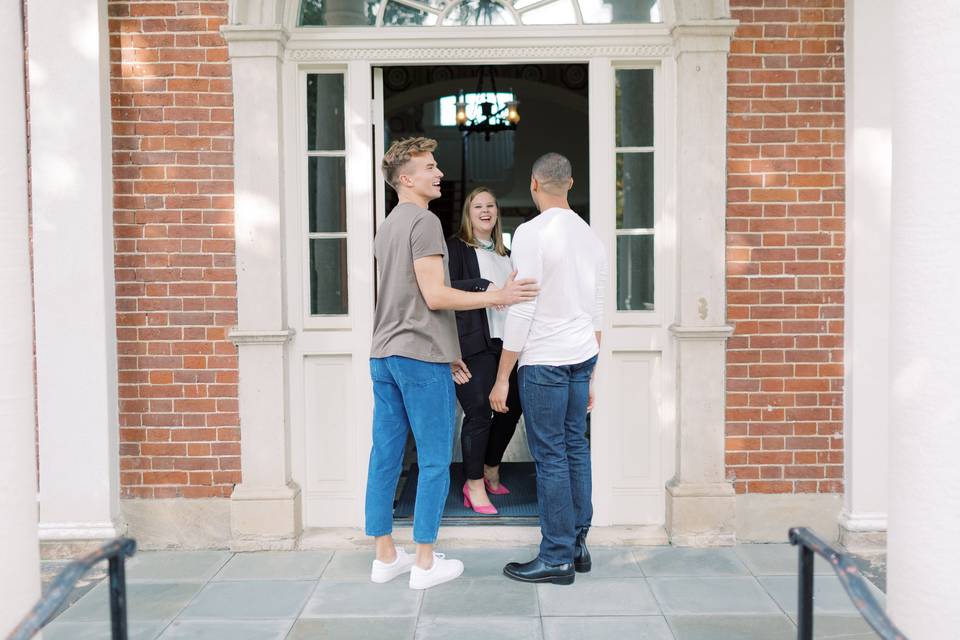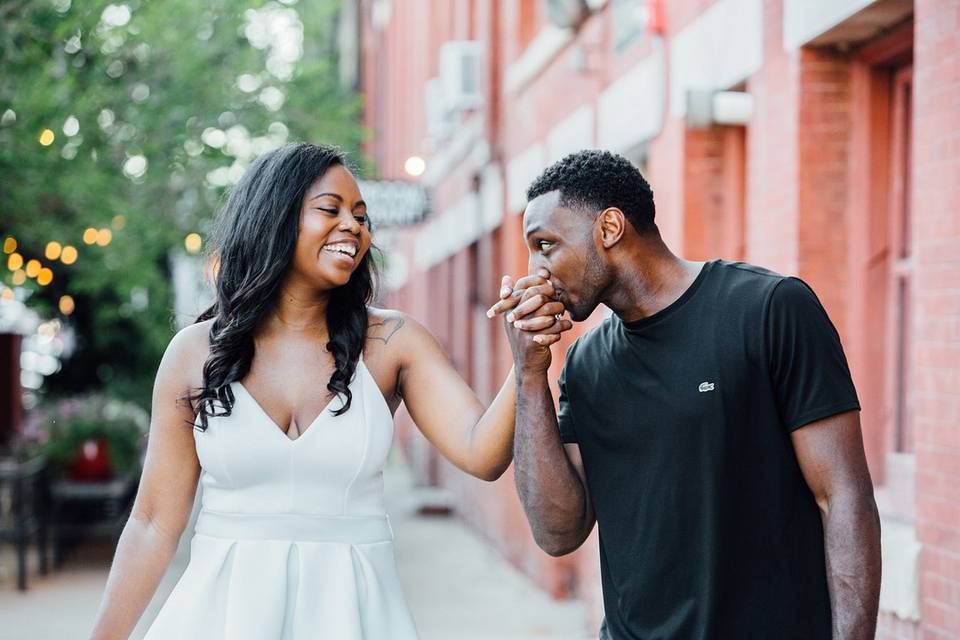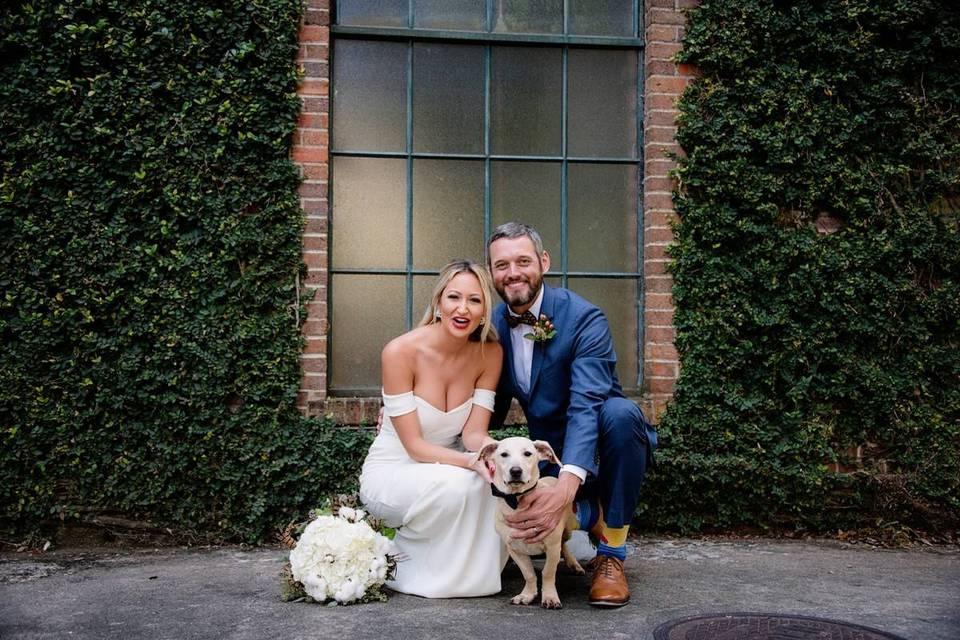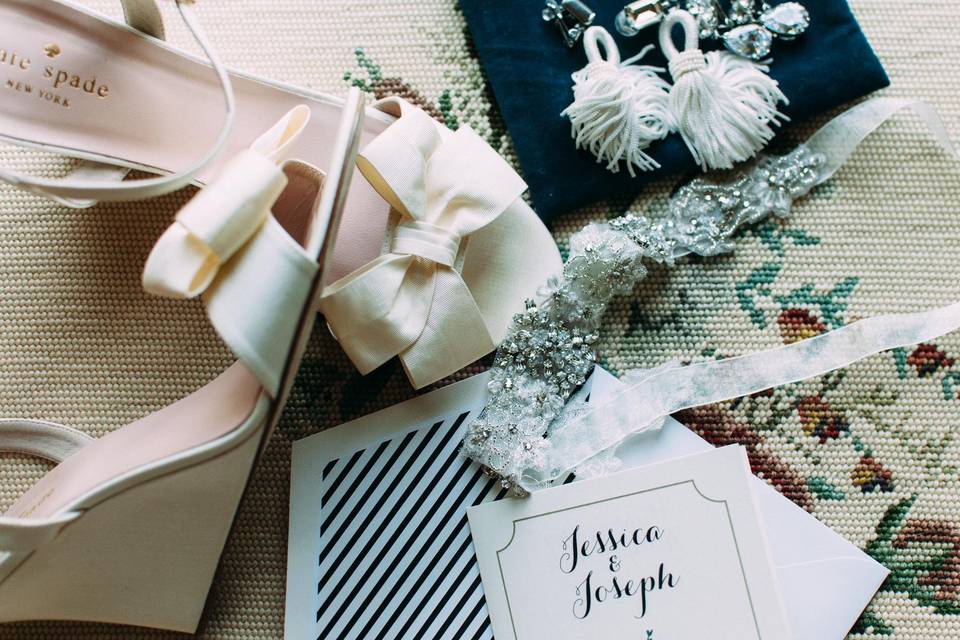How to Support the LGBTQIA+ Community at Your Wedding, and Beyond
Your wedding can be a catalyst for change, from the language you use to the vendors you choose. Here's how to plan an inclusive wedding.
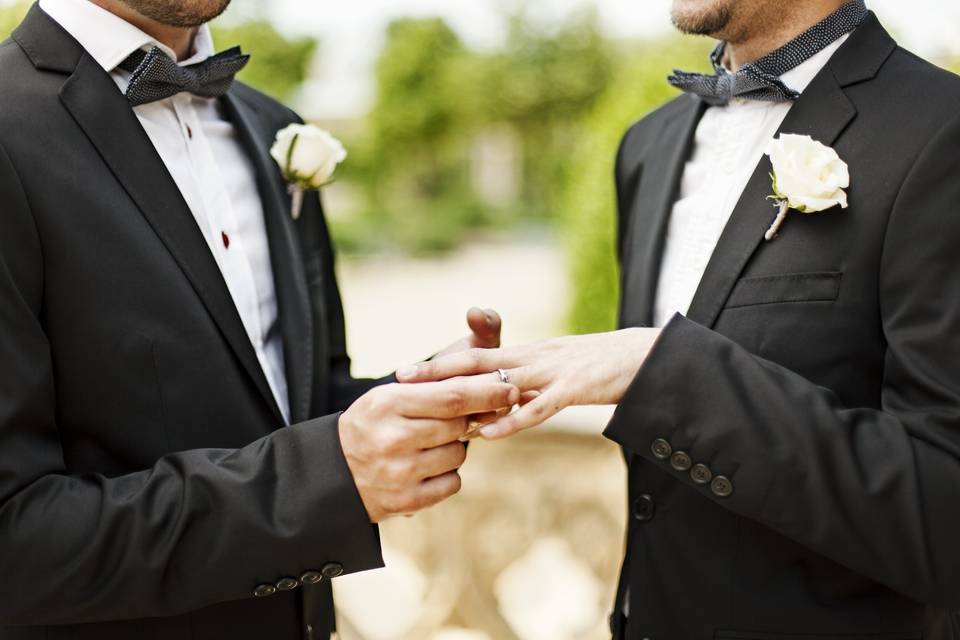

During the month of June, we honor the LGBTQIA+ community through Pride events, purchasing decisions, and involvement. However, as we have all learned throughout the pandemic, staying persistent in the pursuit of equality and inclusion is a year-long — and life-long — priority. For couples planning their wedding, you can take extra steps to support your LGBTQIA+ guests and make vendor decisions that contribute to the greater good. Sadly, while you may believe love is love (is love!), not all duos have the luxury of having their romantic dreams come true due to ongoing discrimination locally and at the national or international level.
To better understand the most impactful ways your wedding can be a symbol of change, we spoke with wedding planner Keith Willard of Keith Willard Events in Fort Lauderdale, Florida. He’s been with his husband Jacob Aronin for 17 years, and they’ve had plenty of experience helping others normalize LGBTQIA+ relationships and interactions. Here, he sheds his insight:
Be inclusive with your wording.
Willard says while things have gotten much better over the years when he and his now-husband would book a hotel room together, a string of questions would follow: “Two rooms?” “One or two beds?” And so on. But it wasn’t the inquiry that would bother him; it was the facial and body language. “Out of that entire conversation, it was the raised eyebrow that used to annoy me the most,” he says.
As couples send out wedding invitations, don’t make any assumptions with wordings, like ‘Mr. & Mrs.’ or ‘Husband and wife.’ Instead, ask guests for their desired honorifics and pronouns in advance. If you book a hotel block for your big day, double-check with the manager that all people of all orientations and gender identities are welcome and will be comfortable. You never want your loved ones to begin the wedding weekend on a negative note — especially one that can be exceedingly hurtful.
Be willing to ask questions.
When you choose the people who will witness the start of your marriage, you likely know them somewhat well. But as you go through the process of wedding planning, you’ll come across vendors you’ve never met or associated with in the past. This means you may use an incorrect pronoun or say something disrespectful unintentionally. The same could be true with a child or plus-one of a friend or family member who identifies as transgender. Or, possibly, they could have just recently come out as gay or bisexual. During this sensitive time, they need extra love, and if you’re unsure on how to interact with any of these individuals, Willard says to ask!
“No one gets it right the first time. How are we as a society to learn how anyone else wants us to speak to them if we don’t ask?” he says. “As an event planner, many of my couples come from multiple backgrounds and cover all ages, sexes, races, and religions. I take the time to ask how the couple feels most comfortable in reference to all the above categories, and if there comes a moment I’m not quite sure, I ask.”
Only work with vendors that are inclusive to all.
A wedding is an expensive investment, and for most couples or families, one of the most significant purchases they’ll ever make. So if you have the cash to spend, why not ensure it goes to a vendor or venue that’s inclusive? And actively demonstrates their support and allyship with the LGBTQIA+ community? While finances aren’t the only way to drive impact, choosing companies that do not discriminate is a step in the right direction toward equality for all couples and all forms of love.
Err on the side of kindness.
It may seem like a no-brainer, but kindness goes a long way. As a gay man, Willard says he is much more accepting of any possible missteps if he knows the person is coming from the point of kindness. And to remember that sexual identities and genders are not the only aspects of our lives that define us. So, how Willard reacts to going on his honeymoon with the love of his life is very similar to a heterosexual couple doing the same thing. “No matter what your background, there are going to be some common experiences that all of us share. Use those experiences to be inclusive in your conversation,” he says.
This means not reacting because a man mentions his husband or a woman mentions her wife. These are all relationships, like any others. In all of your wedding planning — and day-to-day interactions — prioritize acceptance and tolerance always.

